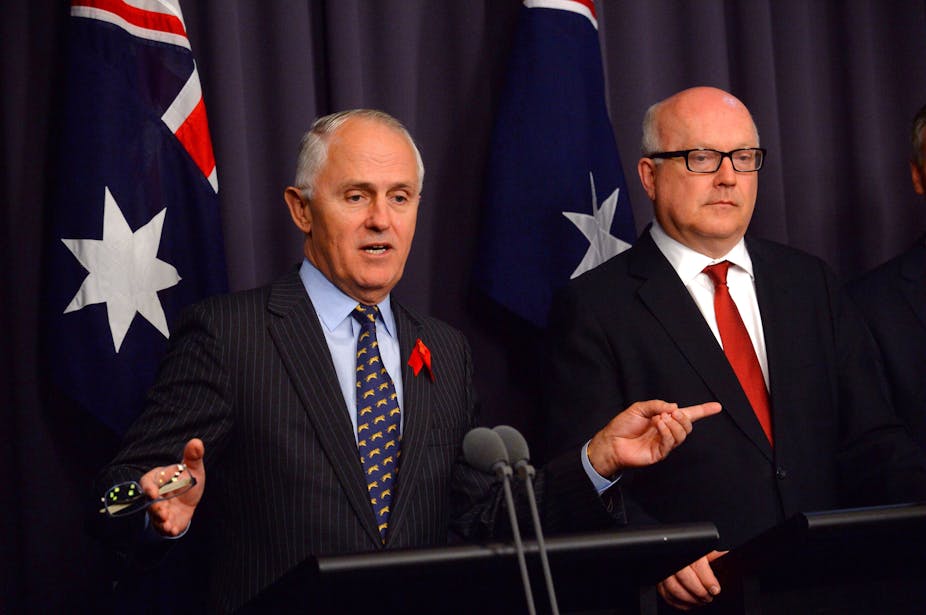The government has introduced its third and most controversial tranche of legislation to strengthen Australia’s national security armoury – the requirement that telecommunications providers keep metadata for two years.
At the same time, Attorney-General George Brandis sought to allay concerns that, under already passed legislation, journalists could face up to ten years jail for breaching bans on reporting special intelligence operations.
Brandis said he had instructed the Director of Public Prosecutions that no such prosecutions could be undertaken without approval by the Attorney-General.
But he dismissed the possibility of a prosecution happening anyway. The notion of journalists being prosecuting for doing their job was “fanciful”.
Communications Minister Malcolm Turnbull said the agencies, including the police and ASIO, were not being given access to more forms of data under the government’s legislation.
The move simply ensured that the metadata to which they already had access would be retained for a period of two years. With changes in technology, service providers were keeping fewer records.
IP addresses would be retained, but service providers will not be required to keep the content or substance of communications, including subject lines of emails or posts on social media.
A person’s web-browsing history will be specifically excluded. Providers won’t be required to keep detailed location records that could allow a person’s movements to be tracked.
The type of data covered “is information about a communication but not its content”, Turnbull said.
“So in the telephone world it reveals that one number belonging to a particular account connected to another number at a time and for a duration but does not reveal what they discussed.
"In the IP world it reveals that a particular IP address which may have been observed to be engaged in some unlawful activity has been at the relevant time allocated to a particular account.”
Turnbull said that access to metadata played a central role in almost every counter-terrorism , counter-espionage, cyber-security and organised crime investigation. “It is also used in almost all serious criminal investigations, including investigations into murder, serious sexual assaults, drug trafficking and kidnapping”.
The legislation will be scrutinised by the parliamentary committee on intelligence and security. It would not be passed through parliament until early next year.
Among the safeguards is the requirement that the parliamentary committee review the effectiveness of the scheme no more than three years after the end of the implementation phase, which will take up to 18 months.
The government will make a “substantial” contribution to companies’ costs of implementing and operating the retention regime but Turnbull said estimates were too imprecise to put a figure on the cost.
Independent senator Nick Xenophon said this would effectively be an internet tax and would hit consumers.
The proposed law put every Australian under suspicion, he said.

